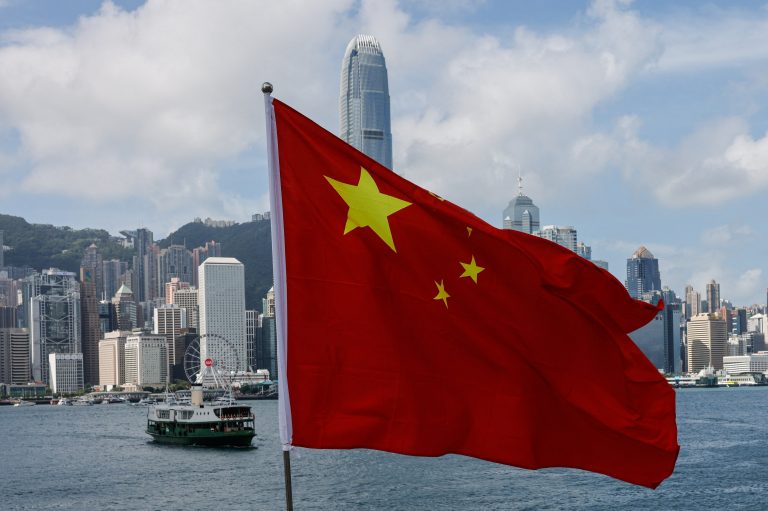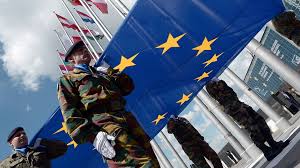
How Europe Should Respond to Trump-Led U.S. Leadership
The Donald Trump-led United States presents a unique challenge for Europe. Trump’s transactional approach to diplomacy and his “America First” agenda could strain the long-standing partnership between the European Union (EU) and the U.S. This shift requires Europe to recalibrate its foreign policy to protect its interests, strengthen its global standing, and navigate a potentially more unpredictable relationship with the U.S.
To respond effectively, Europe must focus on reducing its dependence on the U.S. in critical areas, pursuing strategic autonomy, and diversifying its global partnerships. These steps are essential not just for managing the relationship with a Trump-led U.S., but also for positioning Europe as a more resilient and self-sufficient power in a rapidly changing world.
Strengthening Defence and Security Capabilities
Trump has consistently criticised European NATO members for what he perceives as insufficient contributions to defence spending. During his presidency, he claimed that only 10 out of 30 NATO members met the 2% GDP defence spending goal by 2020 (NATO, 2021). A return to this rhetoric is likely, with heightened demands for increased financial commitments to NATO and a greater emphasis on Europe shouldering more responsibility for its own security. Europe must recognise this not as a threat but as an opportunity to invest in its defence capabilities and reduce reliance on external powers.
The EU should continue to strengthen programmes such as the Permanent Structured Cooperation (PESCO) and the European Defence Fund (EDF), which aim to enhance collaboration among member states and build independent military capabilities. As of 2023, the EDF had allocated €8 billion for collaborative defence projects (European Commission, 2023). Developing a robust, unified European defence infrastructure would not only address Trump’s concerns but also ensure that Europe can protect its interests in the face of regional and global challenges.
Moreover, Europe should focus on expanding cybersecurity and intelligence-sharing initiatives to counter emerging threats. Cyberattacks on EU institutions rose by 20% in 2022 alone (ENISA, 2023). The digital age has introduced complex security challenges, and Europe’s ability to lead in areas such as artificial intelligence, cyber-defence, and secure communication networks will be critical to its security and sovereignty.
Diversifying Global Alliances
Trump’s foreign policy during his first term demonstrated a willingness to disengage from traditional alliances and adopt a unilateral approach. This could lead to further unpredictability in the transatlantic relationship. To mitigate these risks, Europe must diversify its partnerships and expand its influence beyond its historical reliance on the U.S.
Strengthening relationships with powers such as Japan, India, and South Korea can help Europe secure economic and geopolitical partnerships that align with its long-term goals. For example, the EU-Japan Economic Partnership Agreement, signed in 2019, covers nearly a third of global GDP and has bolstered trade by 6% annually since its inception (European Council, 2023). Similarly, deepening ties with Africa and Latin America through trade and investment agreements will not only open up new markets but also position Europe as a partner of choice for emerging economies.
Europe must also work closely with like-minded nations to uphold multilateral institutions such as the United Nations and the World Trade Organisation. While Trump’s policies may deprioritise these institutions, Europe has the capacity to champion global governance frameworks that are essential for maintaining international stability. For instance, the EU’s leadership in implementing the 2021 Paris Agreement showcased its ability to rally international consensus on critical global issues (UNFCCC, 2022).
Managing Trade and Economic Relations
Trump’s approach to trade has always been adversarial, particularly with the EU. His administration’s imposition of tariffs on European steel and aluminium in 2018 resulted in retaliatory measures, escalating a trade dispute that affected €6 billion in exports (European Commission, 2019). A similar approach during his next term would require Europe to adopt a firm but pragmatic stance.
The EU should be prepared to negotiate trade disputes, but it must also defend its industries and regulatory frameworks. European leaders must ensure that key sectors such as automotive, agriculture, and technology are shielded from disproportionate measures while maintaining open channels for dialogue with the U.S.
Simultaneously, Europe should accelerate its efforts to diversify trade relationships by finalising agreements with regions such as ASEAN, Mercosur, and Africa. The EU-Mercosur trade deal, if ratified, could increase EU exports to South America by €4.5 billion annually (European Parliament, 2023). Expanding trade partnerships will reduce economic vulnerabilities and ensure that Europe remains competitive in a global economy where protectionism and bilateralism are becoming more prevalent.
Enhancing Energy Independence
Energy has always been a strategic vulnerability for Europe, and Trump’s policies could exacerbate this issue. In his first term, Trump pressured European countries to reduce their reliance on Russian energy and purchase more U.S. liquefied natural gas (LNG). By 2020, U.S. LNG exports to Europe increased by 68%, driven in part by such pressures (U.S. Energy Information Administration, 2021). While reducing dependence on Russian gas aligns with Europe’s security interests, the solution must not come at the expense of strategic autonomy.
Europe must prioritise investments in renewable energy and energy infrastructure that facilitates interconnectivity among member states. Initiatives such as the European Green Deal, which aims for net-zero emissions by 2050, should be accelerated. By 2023, the EU had already allocated €1 trillion for green projects, solidifying its leadership in sustainable energy (European Commission, 2023). These efforts will ensure that Europe’s energy needs are met sustainably and independently.
Balancing Relations with Russia and China
Trump’s stance on Russia and China has often diverged from Europe’s. A Trump-led U.S. may seek closer ties with Russia, potentially undermining European security interests. At the same time, Trump’s hard-line approach to China could pressure Europe to take sides in a way that may not align with its priorities.
To navigate this, Europe must maintain a balanced approach. On Russia, Europe should strengthen sanctions where necessary and enhance its defence posture in Eastern Europe to deter aggression. NATO’s Enhanced Forward Presence, which includes multinational battlegroups in Baltic states, has been instrumental in deterring Russian threats since 2017 (NATO, 2023). On China, Europe must continue engaging economically while addressing concerns over human rights, intellectual property, and cybersecurity. The EU-China Comprehensive Agreement on Investment, though controversial, represents Europe’s nuanced strategy in balancing economic ties with strategic caution (European Commission, 2023).
Upholding Leadership on Global Challenges
While Trump’s policies may deprioritise issues such as climate change and multilateralism, Europe has an opportunity to assert itself as a global leader on these fronts. The European Green Deal, with its ambitious targets for carbon neutrality, positions Europe as a model for sustainable development. By 2023, the EU had reduced greenhouse gas emissions by 30% compared to 1990 levels (European Environment Agency, 2023). By continuing to champion climate action and green technologies, Europe can strengthen its leadership role on one of the most pressing global challenges of our time.
Similarly, Europe should work to strengthen international institutions and promote cooperative solutions to global issues such as migration, public health, and economic inequality. For example, the EU’s coordinated response to the COVID-19 pandemic, which included a €750 billion recovery fund, demonstrated its capacity for collective action (European Council, 2023). These efforts will not only reinforce Europe’s global influence but also demonstrate the value of collective action in addressing shared challenges.
Conclusion
Europe stands at a crossroads in its relationship with the United States. A Trump-led U.S. will likely bring challenges, including heightened demands for defence contributions, potential trade disputes, and a more unilateral approach to foreign policy. However, these challenges also present opportunities for Europe to redefine its role on the global stage.
By strengthening its strategic autonomy, diversifying partnerships, and asserting leadership on global issues, Europe can navigate the complexities of a Trump-led U.S. while safeguarding its interests. This moment calls for a confident, unified, and forward-looking Europe—one that is prepared not only to manage its transatlantic relationship but also to lead in an increasingly multipolar world.
Dr Brian Reuben is the Executive Chairman of the Sixteenth Council.



